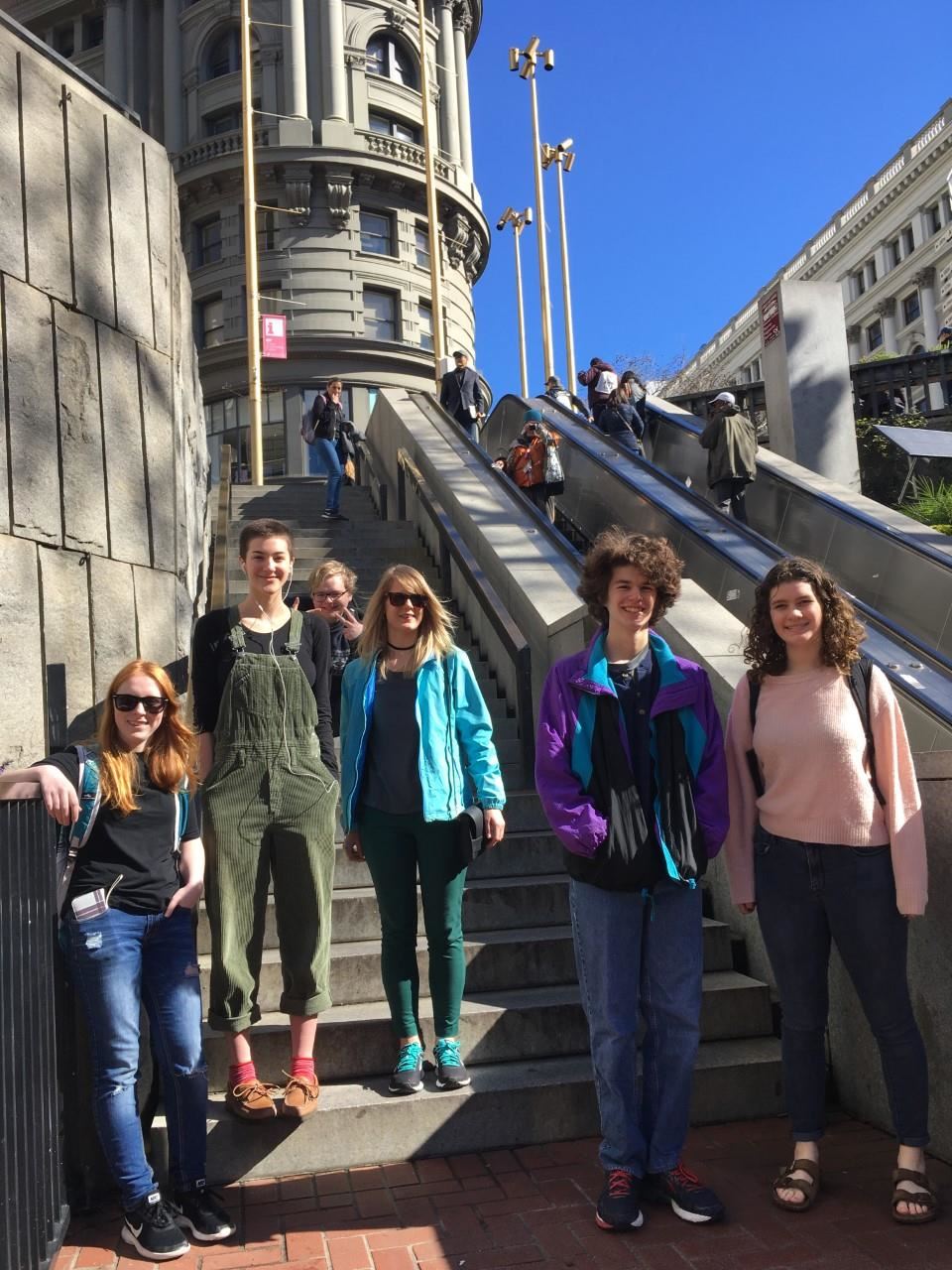- Ferris High School
- What is Speech and Debate?
An Overview of Events
-
Speech and debate is an academic activity typically available to students in middle school, high school, and/or college. Similar to athletic sports, speech and debate activities are challenging, competitive in nature, and require regular practice, coaching, dedication, and hard work.
Speech involves a presentation by one, two, or sometimes a group of students that is judged against a similar type of presentation by others in a round of competition. Speech events range from limited preparation events that require extensive knowledge of current events to dramatic and humorous interpretation, which challenge students to find powerful moments in literature and recreate them for an audience. A brief overview of the speech types can be found below.
Debate involves an individual or a team of debaters working to effectively convince a judge that his or her side of a resolution is, as a general principle, more valid. Students in debate come to thoroughly understand both sides of the resolution, having researched each extensively, and learn to think critically about every argument that could be made on each side. A brief overview of the debate types can be found below.
For more information some links have been provided below, or you can visit the National Speech and Debate Association's website by clicking here.
-
Speech Types
Informative SpeakingExpository Speaking is a ten-minute informative speech that introduces to the audience a topic of the student’s choosing. The speaker should provide unique insights and explore interesting implications. At its core, Expository Speaking is an informative speech. Students doing Expository may cover topics ranging from an organization to a product , a process or concept. Effective speeches provide new information or perspectives on a topic, including those that are widely known.
Original Oratory
Students deliver a self-written, ten-minute speech on a topic of their choosing. Limited in their ability to quote words directly, competitors craft an argument using evidence, logic, and emotional appeals. Topics range widely, and can be informative or persuasive in nature. The speech is delivered from memory.
Impromptu
Impromptu is a public speaking event where students have six minutes to select a topic, brainstorm their ideas, outline and deliver a speech. The speech is given without notes and uses an introduction, body, and conclusion. The speech can be light-hearted or serious. It can be based upon prompts that range from nursery rhymes, current events, celebrities, organizations, and more.
Extemporaneous Speaking
Students are presented with a choice of three questions related to international and Domestic current events and, in 30 minutes, prepare a seven-minute speech answering the selected question. Students may consult articles and evidence they gather prior to the contest, but may not use the Internet during preparation. Topics range from country-specific issues to regional concerns to foreign policy. The speech is delivered from memory.
Dramatic Interpretation
Using a play, short story, or other published work, students perform a selection of one or more portions of a piece up to ten minutes in length. With a spotlight on character development and depth, this event focuses on the student’s ability to convey emotion through the use of a dramatic text. Competitors may portray one or multiple characters. No props or costumes may be used. Performances can also include an introduction written by the student to contextualize the performance, and state the title and the author.
Duo Interpretation
Two competitors team up to deliver a ten-minute performance of a published play or story. Using off-stage focus, competitors convey emotion and environment through a variety of performance techniques focusing on the relationships and interactions between the characters. No props or costumes are used. Performances can also include an introduction written by the students to contextualize the performance and state the title and the author.
Humorous Interpretation
Using a play, short story, or other published work, students perform a selection of one or more portions of a piece up to ten minutes in length. Humorous Interpretation is designed to test a student’s comedic skills through script analysis, delivery, timing, and character development. Competitors may portray one or multiple characters. No props or costumes may be used. Performances can also include an introduction written by the student to contextualize the performance and state the title and the author.
Program of Oral Interpretation
Using a selection or selections of literature, students provide an interpretation of Poetry and Prose with a time limit of ten minutes, including introductions and transitions. Interpretive Reading is characterized by writing that conveys ideas, experiences, and emotions through language and expression. Students may choose traditional poetry, often characterized by rhyme or rhythm, or nontraditional poetry, which often has a rhythmic flow but is not necessarily structured by formal meter (meter is a beat, pattern, or structure, such as iambic pentameter). Students may also use most forms of prose pieces, so long as they are not plays/drama. Students may not use drama (plays) in this category. Students are encouraged to have a good balance of Poetry and Prose to compose this speech. Students must use a manuscript in Interpretive Reading, which typically consists of a small three-ring binder.


